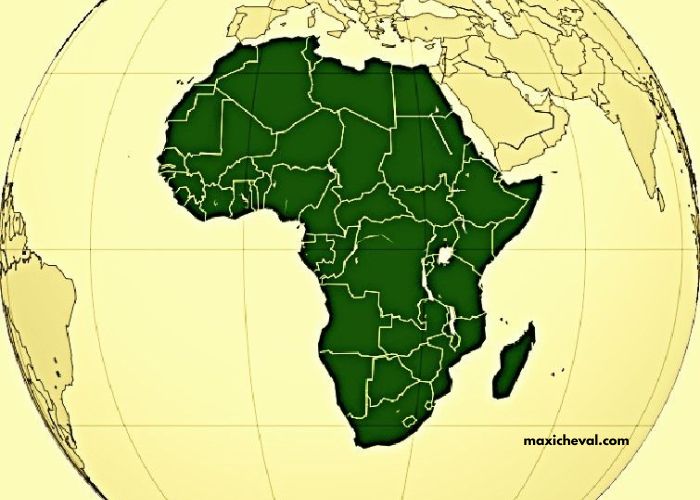The internet, often described as the information superhighway, has become an integral part of our lives. It’s a vast, complex landscape that has transformed the way we communicate, work, shop, learn, and even think. Navigating this digital frontier can be both exhilarating and overwhelming. In this article, we’ll embark on a journey through the internet, exploring its history, evolution, impact on society, and the challenges and opportunities it presents.
The Birth of the Internet
The story of the internet begins in the early 1960s, when the U.S. Department of Defense initiated a research project called ARPANET. Its purpose was to develop a decentralized communication network that could withstand a nuclear attack. ARPANET used a packet-switching protocol, which allowed data to be broken into small packets and sent independently to its destination, where it would be reassembled.
The first message sent over ARPANET was a simple “LOGIN,” which crashed the system after transmitting just two letters. Nevertheless, this experiment laid the foundation for what would become the modern internet.
From ARPANET to the World Wide Web
In the 1970s and 1980s, ARPANET expanded to connect universities and research institutions. Other networks emerged, and the need for a common communication protocol became apparent. This led to the development of the Transmission Control Protocol (TCP) and Internet Protocol (IP), collectively known as TCP/IP, which became the standard for data transmission across different networks.
The 1990s marked a significant turning point with the creation of the World Wide Web by British computer scientist Tim Berners-Lee. The web introduced a user-friendly interface, making it possible for people to navigate and access information using web browsers. This democratized the internet, opening it up to a broader audience beyond academia and the military.
The combination of the web, TCP/IP, and the proliferation of personal computers led to the internet’s explosive growth. By the mid-1990s, the internet had become a global phenomenon, with millions of users and websites.
The Internet Today: A Multi-Faceted Landscape
Today, the internet is an intricate tapestry of technologies, services, and communities. It has evolved beyond a mere tool for communication and research into a platform that encompasses every aspect of modern life. Here are some key facets of the internet landscape:
Social Media and Communication
Social media platforms like Facebook, Twitter, Instagram, and WhatsApp have revolutionized how we connect with others. They enable us to share our thoughts, experiences, and photos with friends and family around the world instantly. Social media has also become a powerful tool for businesses, influencers, and activists to reach and engage with their audiences.
E-Commerce
Online shopping has transformed the retail industry. Companies like Amazon, Alibaba, and eBay have created global marketplaces where consumers can buy everything from books to electronics to groceries. The convenience of e-commerce has reshaped consumer behavior and supply chain logistics.
Information and Entertainment
The internet is a vast repository of information and entertainment. Websites like Wikipedia provide a wealth of knowledge, while streaming platforms like Netflix and YouTube offer endless hours of content. The digitization of media has disrupted traditional publishing and broadcasting industries.
Remote Work and Education
The COVID-19 pandemic accelerated the adoption of remote work and online education. Tools like Zoom, Microsoft Teams, and Google Workspace have become essential for businesses and schools. This shift has raised questions about the future of work and learning.
Cybersecurity and Privacy
As the internet has grown, so have the threats to cybersecurity and personal privacy. Hacking, data breaches, and identity theft are constant concerns. Governments and organizations are grappling with how to balance security with individual rights.
Artificial Intelligence and Big Data
The internet generates vast amounts of data, which are fueling advancements in artificial intelligence (AI). AI powers recommendation systems, virtual assistants, and autonomous vehicles. However, it also raises ethical and privacy issues.
The Impact of the Internet on Society
The internet’s impact on society has been profound, touching nearly every aspect of our lives. Here are some of the most notable effects:
Connectivity and Globalization
The internet has connected people from different corners of the world, breaking down geographical barriers. This has facilitated global trade, cultural exchange, and collaboration on a scale never before seen in history.
Information Accessibility
Information that was once difficult to access is now at our fingertips. This has empowered individuals with knowledge and the ability to educate themselves on a wide range of topics. However, it has also given rise to issues of misinformation and fake news.
Economic Transformation
The internet has transformed the economy, giving rise to the gig economy, e-commerce giants, and online marketplaces. It has created new opportunities for entrepreneurs and disrupted traditional industries.
Social and Political Movements
Social media has played a pivotal role in organizing and amplifying social and political movements, from the Arab Spring to Black Lives Matter. It has also raised concerns about echo chambers and the spread of extremist ideologies.
Privacy and Surveillance
The trade-off between convenience and privacy has become a central issue. Our online activities are tracked and analyzed by companies and governments, raising concerns about surveillance and data privacy.
Education and Learning
The internet has revolutionized education, making it more accessible through online courses and resources. It has also raised questions about the quality of online education and the digital divide.
Challenges and Opportunities
Navigating the digital frontier comes with its share of challenges and opportunities. Here are some key considerations:
Digital Divide
The digital divide refers to the gap between those who have access to the internet and its benefits and those who do not. Addressing this divide is crucial for ensuring that everyone has equal opportunities in the digital age.
Cybersecurity
As our reliance on the internet grows, so do the threats to our digital security. Strengthening cybersecurity measures and educating users about online risks are essential.
Privacy Concerns
The collection and use of personal data by tech companies have raised serious privacy concerns. Governments and organizations must strike a balance between data-driven innovation and protecting individuals’ privacy rights.
Misinformation and Fake News
The spread of misinformation and fake news poses a significant challenge to society. Media literacy and fact-checking efforts are vital in combating this issue.
Regulation and Governance
The internet operates across borders, making it difficult to regulate effectively. Finding the right balance between government intervention and preserving internet freedom is an ongoing debate.
Ethical AI
As AI becomes more integrated into our lives, questions about its ethical use, bias, and accountability must be addressed.
The Future of the Internet
The internet’s future is likely to be shaped by several key trends:
5G and Beyond
Fifth-generation (5G) wireless technology promises faster speeds and lower latency, paving the way for innovations like autonomous vehicles and the Internet of Things (IoT).
Augmented and Virtual Reality (AR/VR)
AR and VR technologies are poised to transform how we interact with the internet, offering immersive experiences for gaming, education, and communication.




